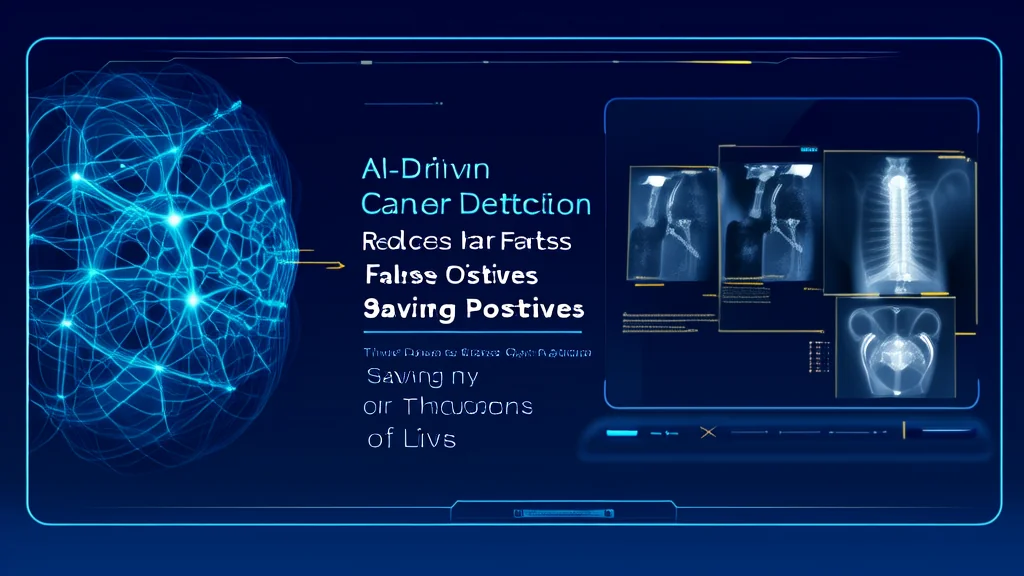AI in Action: Transforming Industries and Everyday Life
Welcome to the latest edition of our AI updates, where we explore how artificial intelligence is not just a buzzword but a transformative force in various sectors. From healthcare to retail, and from startups to consumer tech, AI is making a tangible difference. Let’s dive into some of the most impactful developments and their real-world applications.
Revolutionizing Healthcare: AI-Driven Diagnostics Save Lives
In the realm of healthcare, AI is proving to be a game-changer, particularly in diagnostics. One of the most compelling examples is the use of AI in early cancer detection. A recent study by Google Health and Northwestern Medicine demonstrated that an AI system could detect breast cancer with 9.2% fewer false positives and 28.1% fewer false negatives compared to traditional methods. This means that AI can help doctors identify cancer earlier and more accurately, potentially saving thousands of lives.
Practical Impact: The practical impact of this technology is immense. Early detection of cancer significantly improves survival rates and reduces the need for more invasive treatments. Hospitals and clinics are already adopting these AI systems, and the results are promising. For instance, the University of California, San Francisco, has integrated AI into its radiology department, leading to a 30% improvement in diagnostic accuracy.
Future Implications: As AI continues to evolve, we can expect even more precise and personalized medical care. The next step could be AI-driven predictive analytics, which would allow doctors to forecast and prevent diseases before they occur. This shift towards proactive healthcare could revolutionize the way we think about and manage our health.
Empowering Retail: AI-Enhanced Customer Experiences
The retail industry is also seeing significant benefits from AI, particularly in enhancing customer experiences. One of the most notable examples is the use of AI-powered chatbots and virtual assistants. Companies like H&M and Sephora have implemented AI chatbots that provide personalized shopping recommendations, answer customer queries, and even assist with returns and exchanges. These chatbots use natural language processing (NLP) to understand and respond to customer inquiries, making the shopping experience smoother and more enjoyable.
Practical Impact: The impact on businesses is clear: improved customer satisfaction and increased sales. According to a report by Juniper Research, AI chatbots will save businesses $8 billion annually by 2022. For customers, the benefit is a more personalized and efficient shopping experience. For example, H&M’s chatbot, Kik, has seen a 70% engagement rate, with users spending an average of 15 minutes per session, significantly higher than traditional e-commerce platforms.
Future Implications: As AI technologies continue to advance, we can expect even more sophisticated and seamless shopping experiences. Virtual try-on features, augmented reality (AR) integration, and real-time inventory management are just a few of the possibilities. These innovations will not only enhance the shopping experience but also drive greater efficiency and profitability for retailers.
AI Startups: Disrupting Traditional Business Models
The startup ecosystem is buzzing with innovative AI solutions that are disrupting traditional business models. One such example is Zest AI, a company that uses machine learning to improve credit underwriting. Zest AI’s platform analyzes vast amounts of data to provide more accurate and fair credit decisions. This approach has led to a 20% increase in loan approvals for previously underserved borrowers, while also reducing default rates by 30%.
Practical Impact: The practical impact of Zest AI’s solution is significant. By providing more accurate credit assessments, the company is helping to democratize access to credit, especially for individuals and small businesses that might otherwise be overlooked. This not only benefits the borrowers but also helps financial institutions reduce risk and increase profitability. For instance, a major U.S. bank reported a 15% increase in loan volume after implementing Zest AI’s platform.
Future Implications: The future of AI in finance looks bright, with more startups emerging to tackle various challenges. From fraud detection to automated investment advice, AI is poised to transform the financial landscape. As these technologies become more widespread, we can expect to see more inclusive and efficient financial services, benefiting both consumers and businesses.
Consumer Tech: AI-Enhanced Tools for Everyday Life
AI is also making a significant impact on consumer technology, with new apps and tools designed to make our daily lives easier. One of the most popular AI-powered apps is Calm, a meditation and sleep app that uses AI to personalize guided meditations and sleep stories based on user preferences and behavior. The app has over 100 million downloads and has been praised for its effectiveness in reducing stress and improving sleep quality.
Practical Impact: The practical impact of AI in consumer tech is evident in the growing popularity of these apps. Calm, for example, has seen a 50% increase in daily active users since the start of the pandemic, as more people seek ways to manage stress and anxiety. The app’s AI-driven personalization ensures that users receive content that is tailored to their needs, making the experience more effective and engaging.
Future Implications: As AI continues to advance, we can expect to see more personalized and intuitive consumer tech. From smart home devices to fitness trackers, AI will play a crucial role in enhancing the user experience. The next generation of AI-powered apps and tools will likely be even more integrated into our daily lives, providing seamless and valuable support across a wide range of activities.
As we look to the future, it’s clear that AI will continue to drive innovation and transformation across multiple industries. From improving healthcare outcomes to enhancing customer experiences and democratizing access to financial services, AI is making a real and positive impact on our world. Stay tuned for more updates on how AI is shaping the future!
